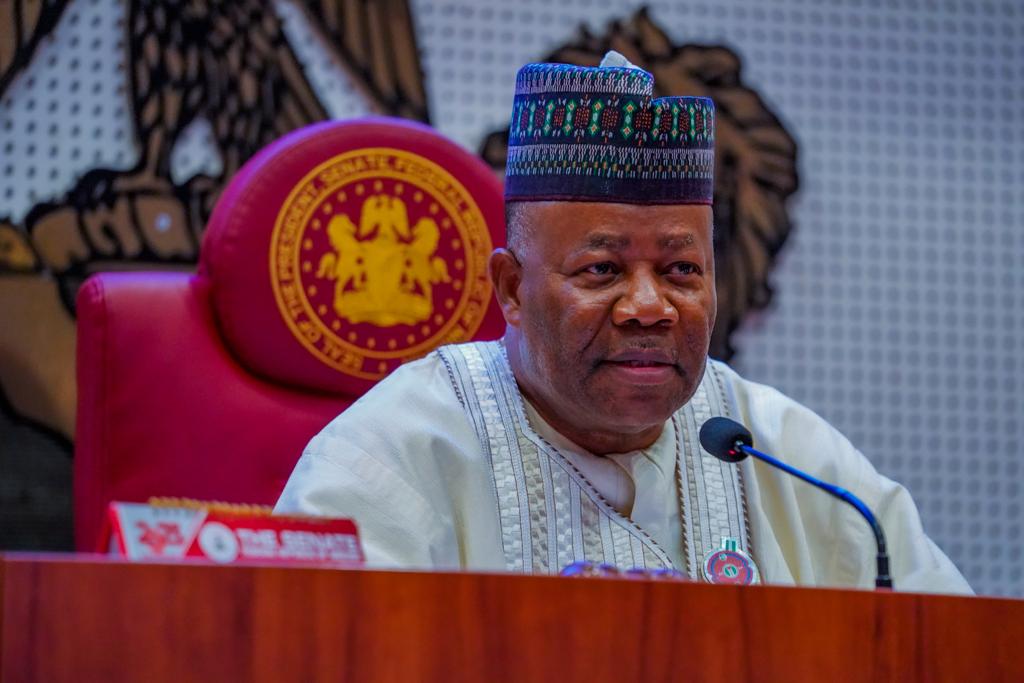September 17, 2020/Mastercard
Furthering longstanding financial inclusion efforts to bring more people and small businesses into the digital economy, the company will bring equitable financial tools, investment and partnerships to cities across the U.S.
In its sustained efforts to build a more inclusive global digital economy, Mastercard is investing $500 million in Black communities over the next five years. This commitment includes products, services, technology and financial support, as well as concentrated investments that will focus on providing Black-owned businesses and Black people access to affordable financial tools and capital.
“This is a time for action. We have an obligation as a corporate citizen to ensure the digital economy is enabled for all, an obligation to be part of the positive change Black communities so rightly need now,” said Ajay Banga, Chief Executive Officer at Mastercard. “We are starting in cities across the country with on-the-ground efforts meant to drive out inequities and create the opportunities, connections and resources that will spark economic growth for the long term.”
With half of all Black Americans excluded from the financial mainstream and Black-owned small businesses excluded from funding opportunities, the commitment is designed to foster inclusion by delivering immediate economic benefits, while driving a lasting impact on economic growth for Black communities. Mastercard will focus on three crucial areas:
01.
Expanding City Programs to Support Black Communities.
Mastercard will bring the full range of its assets including partnerships, technology, and data insights to ensure the quick and effective distribution of essential financial support and access to city programs. In collaboration with city leaders, Mastercard is initiating efforts in seven cities including Atlanta, Birmingham, Dayton, Los Angeles, New Orleans, New York City and St. Louis. As part of these activities the company will bring together identification, financial access and payment functionalities in one place through Mastercard City Key, enabling more than 1 million residents with digital access to essential financial tools and support.
Initial projects include:
In Atlanta, Mastercard is working with the Office of Equity, Diversity and Inclusion and the Stand-up Atlanta initiative to expand a disbursement program that provides rent relief to avoid evictions.
In Los Angeles, Mastercard, the L.A. Mayors Fund and Accelerator for America will expand the Angeleno Card initiative, which has already distributed more than $36 million to help more than 100,000 L.A. residents hardest hit by the pandemic.
In New York, Mastercard, the Mayors Fund to Advance New York City and the City itself partnered to disburse aid digitally, as well as enable emergency fundraising. These efforts have reached 24,000 NYC residents through more than 30 community organizations.
City development teams will also have extended access to Mastercard’s Inclusive Growth Toolkit and Recovery Insights platform to help attract valuable investment into predominantly Black—and often overlooked—neighborhoods.
02.
Affordable financial tools and services
Financial products like credit cards or business loans may leave out the unbanked or underbanked—forcing them to use inconvenient and costly payday lending, check cashing and remittance services. Mastercard is working to dramatically reduce the cost and access to financial products for Black families with a collection of digital services being offered first through African American-owned fintech MoCaFi. The digital Mastercard Money Connect Solutions will allow people to send money to relatives affordably; enable real-time bill payment and check deposits by phone; and help people manage wage fluctuations and unexpected bills through earned wage access instead of having to wait until payday.
03.
Capital and resources for Black-owned businesses
Mastercard will expand its relationships with Community Development Financial Institutions (CDFIs), including Accion Opportunity Fund and the Community Reinvestment Fund, to increase capital availability in minority communities. Mastercard has helped direct $250 million in capital flow to Black-owned small businesses in the U.S. since 2018 and is working to triple that amount through this effort. The company is also investing directly in Black- and minority-led startups and expanding its work with Black-owned goods and service providers. Also, in collaboration with the National Urban League, the Mastercard Center for Inclusive Growth is fostering job creation and economic opportunity through the development of Entrepreneurship Centers and Workforce Development Pathways.
Today’s commitment builds on the company’s efforts to drive financial inclusion across the globe, leveraging our partnerships across banks, telecommunications providers and fintechs and bringing best practices and learnings across regions.
Over the last five years, Mastercard has brought 500 million unbanked individuals into the global financial system, helping them benefit from the digital economy. Following this success, Mastercard has increased its goal to connect one billion people, 50 million small and medium-sized businesses worldwide to the digital economy by 2025, with support for 25 million women entrepreneurs. This will be achieved through targeted regional programs that identify the specific needs of financially underserved populations, – mobilize assets from across the company and draw on the expertise of the City Possible network and Mastercard Center for Inclusive Growth.
Mastercard’s full commitments to addressing racism are outlined in the company’s ‘In Solidarity: Standing Against Racism and Advancing Equal Opportunity for All’ action plan.
From Our Partners:
“Our goal in Birmingham is to become a Southern hub for minority-owned small businesses. This partnership with Mastercard is a major asset in reaching that goal,” said Randall Woodfin, Mayor of Birmingham, Alabama. “Black business owners who are looking to reach the next level, or those attempting to rebound following setbacks from the COVID-19 global pandemic, now will be able to find solid financial footing. This goes a long way in creating a more even playing field for all our residents.”
“COVID-19 and peaceful protests for racial justice have laid bare the deep inequities built into our laws and economy — and sparked a renewed urgency to close gaps in wealth, health, and opportunity for Black Americans,” said Los Angeles Mayor Eric Garcetti. “Every level of government must act to end structural racism, but new policies aren’t enough. With Mastercard investing in Black business owners and connecting communities of color to our financial system, we can start bridging the divide between the promise of economic justice and a reality of equality.”
“Thank you to Mastercard! In the City of St. Louis, we’re exploring ways this investment can support our youth and future generations through expanded access to education, summer programming, and financial literacy opportunities,” commented Lyda Krewson, Mayor of St. Louis, Missouri. “I commend Mastercard for building on their financial inclusion efforts by working with American cities like us to close the racial and opportunity gaps for Black communities created by generations of disparities. We’re thrilled to be partners in this important endeavor.”
“The pandemic has exacerbated structural inequities that have existed for generations, casting a new light on economic and health vulnerabilities in our communities of color,” said New Orleans Mayor LaToya Cantrell. “Effective change requires a community effort and a holistic approach for closing the racial wealth gap. By leveraging Mastercard’s data insights and approach, we can expand and sustain more financial opportunities for Black communities and businesses in New Orleans.”
“2.2 million – 15% – of the nation’s small businesses closed throughout the spring and summer due to COVID19. Minority-owned businesses bore the brunt of the pain, with more than 26% of Black- and 19% of Latino-owned businesses closing. Relief through the federal paycheck protection program was uneven and inequitable, a reflection of longstanding biases in our financial system leaving minority-owned businesses underbanked and undercapitalized,” commented Luz Urrutia, Chief Executive Officer of Accion Opportunity Fund. Accion Opportunity Fund has worked with communities of color across this country for nearly three decades. With support from Mastercard, we are investing in our technology platform to accelerate our lending and advising services to reach and strengthen entrepreneurs of color.”
“Our financial system has systemically disadvantaged and excluded Black communities throughout this country’s history,” said Frank Altman, Founder and Chief Executive Officer, Community Reinvestment Fund, USA. “We can and must do better. As part of our partnership with Mastercard, we are accelerating our efforts to increase access to capital and credit for Black-owned businesses by reexamining our credit products and rooting out hidden bias in credit decisions. Our aim is to level the playing field for economic growth.”
“Many Black families, shut out from the formal economy, struggle to find affordable financial products and services that meet their day to day needs,” said Wole Coaxum, Chief Executive Officer, Mobility Capital Finance (MoCaFi). “Partnering with Mastercard, we are building digital services that aim to bridge the economic mobility gap for Black Americans and advance their ability to affordably save, invest, and insure themselves against risks.”
“Black entrepreneurs have battled decades of historical disinvestment that have limited access to necessary resources and funding that enable economic empowerment. And, research has shown that Black small business owners have been disproportionately impacted by the COVID-19 pandemic,” said Marc Morial, President and Chief Executive Officer, National Urban League. “We are proud to expand our long-standing partnership with Mastercard to launch a new leadership institute that will equip community leaders with necessary skills to combat these economic injustices in Black communities.”
“We’re in the midst of a historical shift. Major events, like we’re experiencing right now, can be instruments for change. We have an opportunity to focus that change for good,” said Chef Marcus Samuelsson. “Just as we chose to continue to serve the communities of Harlem, Newark and Overtown in a time of need with our resources there, Mastercard has also chosen to serve the needs of the Black community in this time. By breaking down the systemic barriers that have prevented economic justice and ensuring that individuals and businesses thrive, we can bring back our neighborhoods and restore our cities together.”














